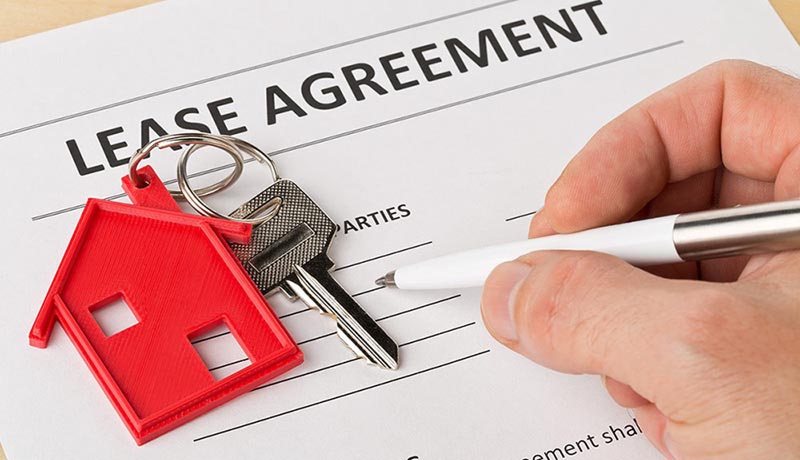Escrow Accounts in Thailand

Escrow Accounts in Thailand. In Thai commercial practice, escrow accounts offer a neutral and regulated mechanism to protect both parties in a transaction—especially in property transfers and large-scale financial arrangements. Escrow services act as a safeguard where payment is held in trust by a licensed third party, to be released only upon fulfillment of predetermined contractual conditions.
Thailand has codified its escrow law, but its use remains limited by regulation, particularly for individual real estate transactions. Nonetheless, escrow accounts are gaining ground in real estate, mergers and acquisitions, construction, and cross-border investment deals.
I. Legal Framework
The provision and regulation of escrow accounts in Thailand is governed by:
-
Escrow Act B.E. 2551 (2008) – Thailand’s primary statute on escrow arrangements.
-
Ministerial Regulations issued under the Act
-
Oversight by the Ministry of Finance and Bank of Thailand for financial institution involvement
The Act defines the legal role of escrow agents, outlines licensing criteria, and specifies the conditions under which an escrow arrangement may be established.
II. Key Definitions and Parties
1. Escrow Account
A dedicated, segregated bank account in which funds or property are held by a neutral third party (the escrow agent) until certain contractual obligations are fulfilled.
2. Parties Involved
-
Escrow Agent: A licensed intermediary that holds funds or property in trust.
-
Depositor (Buyer): The party who places money or assets into escrow.
-
Beneficiary (Seller or Service Provider): The party entitled to receive funds upon satisfying conditions.
-
Bank (Custodian): Holds the actual escrow funds; must be authorized by the Bank of Thailand.
III. Licensing of Escrow Agents
Under the Escrow Act, only certain parties may act as escrow agents:
-
Commercial banks licensed in Thailand
-
Finance companies or insurance companies (with special permission)
-
Entities licensed by the Ministry of Finance to act as escrow agents
Private lawyers or individuals cannot legally operate as escrow agents unless registered and licensed under the Act.
The licensing process requires:
-
Financial capacity
-
Adequate internal controls
-
Staff training
-
Compliance systems for anti-money laundering (AML) and know-your-client (KYC) procedures
IV. When Escrow Is Used in Thailand
A. Real Estate Transactions
The most common application is in property purchases, especially when:
-
The seller requires payment security before title transfer.
-
The buyer wants assurance that funds won’t be released until title or ownership is properly transferred.
-
The buyer is foreign and requires additional due diligence steps.
Example use cases:
-
Condominium purchases from developers
-
Sale of property involving foreign buyers
-
Off-plan real estate projects (though not widely adopted due to cost)
Escrow is not mandatory in most Thai real estate transactions, except where required by the project developer or contractually agreed.
B. Project Finance and Construction
Used in:
-
Milestone payments to contractors
-
Capital contributions in infrastructure projects
-
Investment tranches tied to licensing or regulatory approvals
The escrow structure ensures that contractors or developers only access funds when deliverables are certified or project conditions are met.
C. Mergers and Acquisitions
In cross-border M&A deals:
-
Escrow is used to hold a portion of purchase price pending regulatory approvals or to cover indemnities.
-
It acts as a buffer during the warranty and representation period.
-
Often used with foreign counsel and multinational escrow agents (e.g., global banks).
D. Litigation and Dispute Settlement
Courts or parties to a dispute may agree to place funds in escrow:
-
Pending final judgment
-
As security for injunctions
-
During mediation or arbitration
V. Contents of an Escrow Agreement
A valid escrow arrangement must be formalized in writing. Key terms include:
-
Purpose and Object
Clear description of the transaction and escrowed funds. -
Conditions for Release
Specific performance criteria or documentation needed before release of funds. -
Duration
Time period the escrow is valid and conditions under which it expires or renews. -
Governing Law and Dispute Resolution
Thai law typically governs, with disputes heard in Thai courts or specified arbitration forums. -
Obligations of Escrow Agent
Duties to hold, report, and release funds transparently. -
Fees and Expenses
Usually paid by the buyer, or shared, depending on agreement.
VI. Regulatory and Operational Considerations
A. Bank Compliance
The actual funds are held in a segregated account at a licensed Thai bank. Banks perform:
-
KYC/AML checks
-
Transaction monitoring
-
Interest remittance or deductions, where applicable
Escrow accounts are not intended for investment—they are non-interest-bearing or have limited earning potential due to restrictions.
B. Limitations on Foreign Currency
Escrow accounts dealing with foreign currency may require:
-
Bank of Thailand approval
-
Compliance with Foreign Exchange Regulations
-
Reporting of remittances through the Foreign Exchange Transaction Form (FETF) for property-related payments
VII. Legal Risks and Mitigation
1. Misuse of Escrow Role
Using unlicensed individuals or companies to hold funds can be unlawful and render the escrow unenforceable.
2. Breach of Release Conditions
Agents must strictly adhere to release conditions. Ambiguity in documentation may lead to disputes or improper fund transfers.
3. No Automatic Enforcement
If one party alleges breach of condition, escrow agents cannot act as judges. A dispute may still require judicial or arbitral resolution.
4. Regulatory Non-Compliance
Use of escrow accounts in capital-intensive sectors may require parallel filings or approvals from:
-
SEC (if related to securities)
-
BOI (if related to promoted projects)
-
Land Department (for real estate development)
VIII. Alternatives to Formal Escrow
Given licensing limitations and costs, Thai parties sometimes opt for informal substitutes:
-
Joint bank accounts (high-risk, prone to misuse)
-
Lawyer’s client accounts (acceptable only if authorized)
-
Trust structures (not widely recognized under Thai law)
These alternatives lack legal protection under the Escrow Act and are generally discouraged for high-value transactions.
IX. Cost and Fees
-
Escrow fees vary by institution and complexity.
-
Typical fees range from 0.1% to 1% of the escrowed amount.
-
For M&A or multi-stage financing, flat fees plus holding costs are common.
-
Fees are often split, but parties must agree in writing.
Conclusion
Escrow accounts in Thailand offer an important legal and financial safeguard for transactions involving high value, performance conditions, or multi-party arrangements. While use is currently limited by regulation and market practice, their importance is growing—particularly in real estate, infrastructure, and cross-border commerce.
Parties seeking to use escrow should ensure that:
-
The agent is properly licensed
-
The escrow agreement is precise
-
Regulatory and tax implications are fully understood
-
Dispute resolution mechanisms are in place
Given the formal and procedural nature of Thai law, using escrow improperly—or relying on informal arrangements—can expose parties to significant risk.








